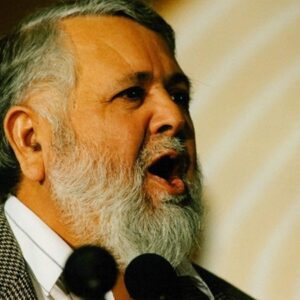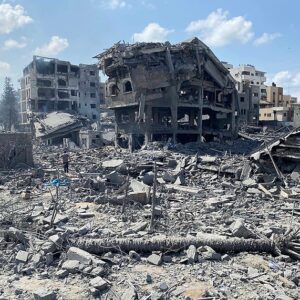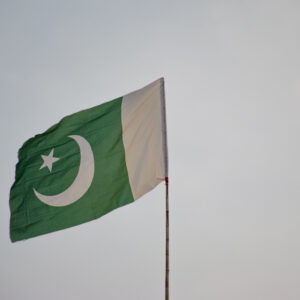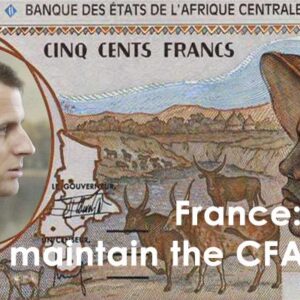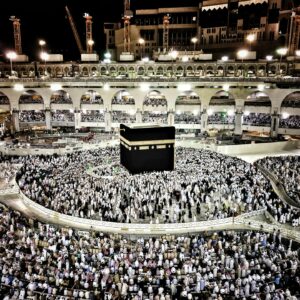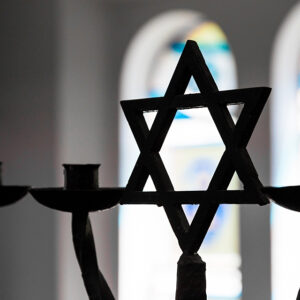Yahya Birt of the Ayaan Institute recently assessed the core legacy of the late Dr. Kalim Siddiqui which he argues is still relevant for Muslim politics today. Giving Ourselves Permission – The core legacy of Kalim Siddiqui, the Muslim Institute, and the Muslim Parliament We Muslims are living through a moment of profound clarity. Our...
Category: Expertise
Should Muslims Boycott Piers Morgan?
Presenter Piers Morgan has gained quite a viewership from debates with high profile/controversial people who support the Palestinian cause, including Muslims. It has become an obsession for many in the Muslim community to watch his shows and then discuss how well or badly Palestinian sympathisers have done. It’s easy to get sucked into this form...
Unity Squandered by State Selfishness: The International Aftermath of the 1973 War with Israel
After a fleeting moment of Muslim Co-operation in the 1973 War with Israel, Ibrahim Moiz examines how inter-state rivalries and seeking US patronage led to the dissipation of the Palestinian cause. Unity Squandered by State Selfishness: The International Aftermath of the 1973 War with Israel October 2023 marked fifty years since the most signal feat...
The Autumn 1973 War with Israel: Redemption and Realignment
Ibrahim Moiz looks back on a rare moment of Arab and Muslim unity in Yom Kippur War against Israel in 1973. The Autumn 1973 War with Israel: Redemption and Realignment Judaism’s holiday of Yom Kippur in the year 1973 happened to fall within the Islamic month of Ramadan. Early on that morning, the Israeli occupation...
Gaza – food and medicine are no defence against bombs and bullets
Jahangir Mohammed of the Ayaan Institute argues that food and medicines will not end Palestinian slaughter. Only a political settlement and end to the ideology of European Jewish supremacy and US imperialism can end political violence in the region. In the present conflict he believes Israel may effectively annex Gaza and the West Bank. GAZA:...
Has Imran Khan Played His Last Innings for Pakistan?
Imran Khan became a Pakistani cricketing legend who transformed international cricket with his call for neutral umpires. Jahangir Mohammed argues that he has already changed Pakistani politics and put all of Pakistan’s institutions on trial. He is also destined to become a political legend, no matter how his innings comes to an end. Has Imran...
The French Exploitation of Africa Must Come to An End
In the aftermath of the military coup in Niger and the French threat to intervene, Jahangir Mohammed calls for all those genuinely concerned about Africa to work toward ending the ongoing exploitation of former African colonial states. The French Exploitation of Africa Must Come to An End A military coup in Niger overthrowing the pro-Western...
Remembering Srebrenica 20 years later as it should be
An article from 2015 by Jahangir Mohammed Director of the Ayaan Institute on the Bosnian Muslim genocide in Srebrenica on its 20 year anniversary. The massacring of eight thousand unarmed Bosnian Muslim men in Srebrenica is no distant memory, and is full of lessons for Britain and its Muslim minority. It was a genocide against the...
Hajar (Hagar) the African Woman and Migrant at the Heart of the Hajj
Jahangir Mohammed argues that Sayyida Hajar plays a central role in the Hajj and is the mother of the Muslim nation. He also claims that Hajar and her son Ismail (as) are at the heart of the division between Christians, Jews, and Muslims as well as the conflict between Israel and the Palestinians. Hajar (Hagar)...
Is Israel becoming a theocratic Zionist state?
Jahangir Mohammed writes that Israel is transforming from a secular Zionist state toward a theocratic Zionist state, and that is not what secular European Jews or their Western backers envisaged or wanted. Israel at 75: Toward A Religious Zionist State. The state of Israel marks its 75th anniversary this week. Meanwhile, Palestinians and Arabs will...

